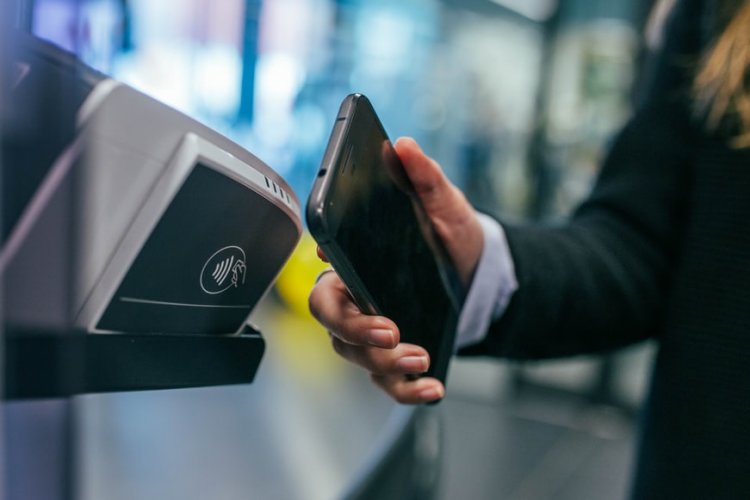In the FinTech industry, 2021 has been a rising year for mergers and acquisitions (M&As). The Financial sector, which rose to prominence on the promise of competitive disruption, has progressed through the ranks and is now focusing on collaboration and consolidation. The year 2020 was a true test for FinTech, as the pandemic put new-age business models to the test. The industry, as a whole, has become stronger as a result of the crisis, and it is striving to achieve new heights in this decade by collaborating with fellow disruptors as well as incumbents. There was a substantial consolidation across worldwide key FinTech sectors such as Digital Banking, Payments, Buy Now Pay Later (BNPL), Lending, Wealth Management, Insurance, FinTech Infrastructure, and Decentralized Finance in 2021, which was a breakout year for M&As (DeFi).
.jpg)
The FinTech business had around 10 billion-dollar deals in 2021. With a massive $29 billion purchase, Square’s acquisition of Afterpay topped the lists. GreenSky was acquired by Goldman Sachs, while Paidy was acquired by PayPal, making BNPL the sector of 2021. With PayU’s acquisition of BillDesk and Mastercard’s completion of its acquisition of Nets in 2021, Payments was featured frequently on the acquisition list. The acquisition of Nets by Mastercard in 2021 was notable because it began in 2019 and took nearly 18 months to gain all of the necessary permissions and reach the closing stage. Visa’s acquisition of Tink has finally materialised, propelling the corporation’s desire to embrace open banking and transition from its dominant position as a payment rails company to a data rails giant. Rocket Companies, a real estate, mortgage, and financial services platform, acquired personal finance startup Truebill in December 2021, capping off another billion-dollar year.
FinTech Startup
FinTech is a thriving business, with fast-growing challenger startups making their imprint on what was once an old-fashioned market dominated by a few giant firms. A startup is a young company that hasn’t been around for more than five years. They’re frequently humming with energy, excitement, and a sense of possibilities, thanks to their open-minded culture and openness to embrace change. We can describe a FinTech start-up as a fledgling business that employs, often mobile technology, to provide a financial service by merging the two principles. The popular fintech startups are delivering a service that traditional high-street banking no longer provides. FinTech startups aren’t bound by clumsy or obsolete processes, and strict opening hours are a thing of the past for them. FinTech start-up consumers have access to the desired service at their leisure, with 24-hour account visibility and complete client control, ranging from mortgages and pensions to direct-debit administration.
Let’s have a look at the FinTech acquisition startups that occurred last year based on Crunchbase.
Source: White Sight, Startups.
Republic Acquired UK’s Seedrs

Seedrs, a UK equity crowdfunding platform, was acquired by Republic, a start-up investing platform, for $100 million on December 1, 2021. Seedrs was the world’s first regulated equity crowdfunding platform, attracting £1.5 billion in investment and serving as the consumer investment platform for digital bank Revolut, which is now a unicorn. A secondary marketplace was also introduced for the first time on the platform. Republic is a significant US fintech startup that allows users to engage in private market stock, debt, or crypto offerings, and its private asset management profession has about $1 billion in assets under management. Republic and Seedrs had a long-standing cooperation in which Seedrs counselled Republic’s leadership team prior to this deal. Jeff Lynn, the cofounder and now chairman of Seedrs, will continue to lead Republic’s European expansion, which will now be able to take advantage of new EU law that has harmonised crowdfunding rules across the bloc. Republic announced that it will spend more money in Seedrs’ European expansion to assist provide new technologies and tools for European investors and private entrepreneurs.
Source: TechCrunch
Robinhood And Cove Markets Acquisition

On December 15, 2021, Robinhood, a well-known stock and cryptocurrency trading platform, purchased Cove Markets, a cross-exchange trading platform. According to a blog post by the startup, the deal is meant to enable crypto investors manage their cryptocurrency accounts in a straightforward and cost-effective manner. Following the acquisition, Cove Markets’ top partners, including co-founders Victor Glava and Scott Knudsen, will join the Robinhood crypto team. On public domains, the deal’s acquisition price has remained secret. Cove Markets’ cross-exchange nature will aid Robinhood in bridging the gaps between crypto exchanges. So far, it’s unsure how much Robinhood would use Cove Markets’ existing technology and whether it will integrate it into its own platform.
Source: Gadgets 360
Acquisition of Tax2win by Fisdom

Fisdom, a Bengaluru-based fintech startup, has purchased an unannounced amount for Tax2win, a Jaipur-based online income tax return submission platform, on February 23, 2021. Fisdom’s acquisition of Tax2Win, according to Subramanya SV, co-founder and CEO, further strengthens the startup’s position as a leading fintech firm in India and is in keeping with the company’s strategic goal of offering a complete suite of financial services for its customers and partners. Customers regard taxation as a hard subject, according to him, and there is a large awareness gap. Tax2Win will continue to run independently following the merger. However, both companies will collaborate to give a wholesome experience to their respective consumers and partners, integrating the product portfolios of the other.
Source: The Economic Times
Bestow Acquired Centurion Life

On 14 September 2021, Centurion Life Insurance Company, an insurer with licences in 47 states and the District of Columbia, has been acquired by Bestow, the leading digital life insurance platform. Bestow acquired the ability to build and launch a suite of new financial protection products on its platform with the completion of this life insurance carrier acquisition, expanding its objective of making coverage accessible to millions of underprivileged families. Bestow is expanding significantly across all of its business segments. The startup has already doubled its year-to-date revenue by adding top insurance and fintech partners.
Source: Yahoo Finance
MicroAcquire’s Acquisition of Exitround

Throughout their lives, entrepreneurs face thousands of challenges. The list goes on and on about seed money, expansion, and staffing. Even those that flourish find it difficult to sell when times are good, thanks to high-priced brokers and investment bankers tainting their taste for success. Exitround’s acquisition by MicroAcquire on April 8, 2021, rewrites this story, assisting founders in achieving their goals from startup through exit. MicroAcquire, a startup acquisition marketplace, has already aided entrepreneurs in exiting their businesses by providing an anonymous, free platform where buyers and sellers can meet. It’s never been easier to start a business, but expanding one and positioning it for acquisition remains a demanding undertaking that can stop even the most steadfast founders from continuing forward, according to Jacob Mullins, founder of Exitround. He was ecstatic to see that MicroAcquire had bought Exitround, allowing people to finally see an end to these hurdles in 2021 and beyond.
Source: PR Newswire
Toss Acquired VCNC
.jpg)
On October 8, 2021, Viva Republica Inc., the creator of the popular South Korean financial app Toss, stated that it will buy a 60% share in VCNC, the company behind the ride-hailing service Tada, in order to enter the country’s competitive mobility sector. The fintech firm mentioned that it has inked a three-way memorandum of agreement to buy the interest from VCNC and its parent business, SOCAR. Viva Republica purchased fresh VCNC shares, and the transaction was finalised in the same month. Since its introduction in 2015, Toss has grown in popularity by combining a variety of financial services, such as money transfers and mobile payments, with brokerage services in a single smartphone app.
Source: Yonhap News Agency
Acquisation of Happay by CRED

CRED has agreed to purchase Happay, a corporate expenditure management platform, in a cash-and-stock agreement on December 1, 2021, to expand its fintech products. While financial details of the proposed CRED-Happay merger were not disclosed, according to a statement, the transaction values Happay at about $180 million. Happay, which was established by Anshul Rai and Varun Rathi, will continue to operate independently while collaborating with CRED’s leadership to use its network, boost distribution, and expand product offerings. The 230-person Happay team will be eligible for all of CRED’s benefits, including its ESOPs programme.
Source: The Economics Times
Conclusion
We see a wave of consolidation on the horizon as the FinTech industry emerges from the shadows of the pandemic and gains traction. As they take major strides toward becoming super-apps, FinTech titans and incumbent banks are projected to engage in an M&A tug-of-war in 2022 to harness emerging themes such as open banking and embedded finance. Everything has to begin somewhere, so why not begin here?


















